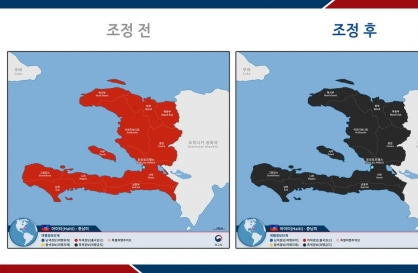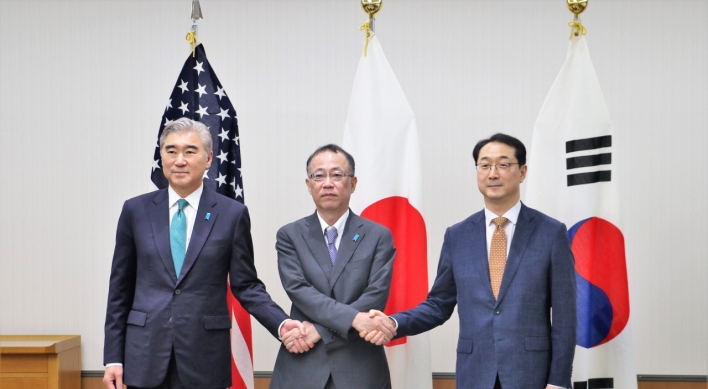A growing number of private think tanks and scholars are raising questions over the fiscal feasibility of President-elect Park Geun-hye’s welfare-centered campaign promises, with some insisting Sunday that her initial financial projection was less than half of what would be necessary.
The ruling Saenuri Party has said that a budget of 130 trillion won ($123 billion) would be enough to cover all of Park’s welfare promises, including pension payments for all senior citizens, expansion of health care coverage and increased supply of low-cost housing, over the next five years.
But Seoul’s private think tanks, including the Korea Economic Research Institute, cautioned that Park’s welfare promises will actually cost taxpayers 270 trillion won, or 54 trillion won annually during her five-year presidential term.
The Korea Institute for Health and Social Affairs issued an even more dismal outlook, saying that the Saenuri Party’s major welfare pledges would cost up to triple the initial budgetary estimate. The institute said the fiscal uncertainties will mainly stem from Park’s pledge to expand free education to include high school students and expanded insurance coverage of patients suffering from cancer and three other major diseases.
With rising concern over the feasibility of the election promises, Park’s transition team is reportedly scrambling for ways to fund a string of welfare and other expensive projects promised during her campaign.
In April, a government task force team led by the Ministry of Finance and Strategy said that about 268 trillion won is needed in the next five years to implement all welfare pledges proposed both by the ruling party and the main opposition Democratic United Party last year.
Experts say the new government should make the budget problem a public issue to go ahead with implementing the pledges or set priorities on some key projects before Park takes office in late February.
Han Hee-won, a professor of law at Dongguk University, said 100 percent implementation of pledges is a mere “illusion,” urging the transition team to sort out less important tasks in the policy briefing process.
Kim Yoo-chan, a business professor of Hongik University, called for the government to raise income and corporate tax rates to secure the much-needed budget.
According to Park’s campaign promise, the incoming administration is supposed to raise 71 trillion won of the necessary 134 trillion won by cutting expenditures. The rest will be raised by scaling back tax breaks and exemptions, bringing more of the underground economy into the tax system and other measures.
“It is questionable how (the government) can draw necessary funds by cutting tax exemptions and cracking down on the underground economy,” Kim said during a financial seminar held on Friday.
Although Park has said it is premature to talk about altering any of her campaign pledges, some ruling party members have seriously questioned whether it would be possible to raise the necessary funds without raising tax rates in accordance with her campaign promise.
According to Park’s campaign promise, the incoming administration is supposed to raise 71 trillion won of the necessary 134 trillion won by cutting expenditures. The rest will be raised by scaling back tax breaks and exemptions, bringing more of the underground economy into the tax system and other measures. (Yonhap News)
The ruling Saenuri Party has said that a budget of 130 trillion won ($123 billion) would be enough to cover all of Park’s welfare promises, including pension payments for all senior citizens, expansion of health care coverage and increased supply of low-cost housing, over the next five years.
But Seoul’s private think tanks, including the Korea Economic Research Institute, cautioned that Park’s welfare promises will actually cost taxpayers 270 trillion won, or 54 trillion won annually during her five-year presidential term.
The Korea Institute for Health and Social Affairs issued an even more dismal outlook, saying that the Saenuri Party’s major welfare pledges would cost up to triple the initial budgetary estimate. The institute said the fiscal uncertainties will mainly stem from Park’s pledge to expand free education to include high school students and expanded insurance coverage of patients suffering from cancer and three other major diseases.
With rising concern over the feasibility of the election promises, Park’s transition team is reportedly scrambling for ways to fund a string of welfare and other expensive projects promised during her campaign.
In April, a government task force team led by the Ministry of Finance and Strategy said that about 268 trillion won is needed in the next five years to implement all welfare pledges proposed both by the ruling party and the main opposition Democratic United Party last year.
Experts say the new government should make the budget problem a public issue to go ahead with implementing the pledges or set priorities on some key projects before Park takes office in late February.
Han Hee-won, a professor of law at Dongguk University, said 100 percent implementation of pledges is a mere “illusion,” urging the transition team to sort out less important tasks in the policy briefing process.
Kim Yoo-chan, a business professor of Hongik University, called for the government to raise income and corporate tax rates to secure the much-needed budget.
According to Park’s campaign promise, the incoming administration is supposed to raise 71 trillion won of the necessary 134 trillion won by cutting expenditures. The rest will be raised by scaling back tax breaks and exemptions, bringing more of the underground economy into the tax system and other measures.
“It is questionable how (the government) can draw necessary funds by cutting tax exemptions and cracking down on the underground economy,” Kim said during a financial seminar held on Friday.
Although Park has said it is premature to talk about altering any of her campaign pledges, some ruling party members have seriously questioned whether it would be possible to raise the necessary funds without raising tax rates in accordance with her campaign promise.
According to Park’s campaign promise, the incoming administration is supposed to raise 71 trillion won of the necessary 134 trillion won by cutting expenditures. The rest will be raised by scaling back tax breaks and exemptions, bringing more of the underground economy into the tax system and other measures. (Yonhap News)
-
Articles by Korea Herald










![[New faces of Assembly] Architect behind ‘audacious initiative’ believes in denuclearized North Korea](http://res.heraldm.com/phpwas/restmb_idxmake.php?idx=644&simg=/content/image/2024/05/01/20240501050627_0.jpg&u=20240501225745)








